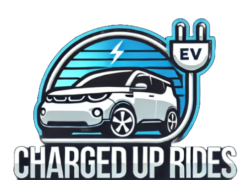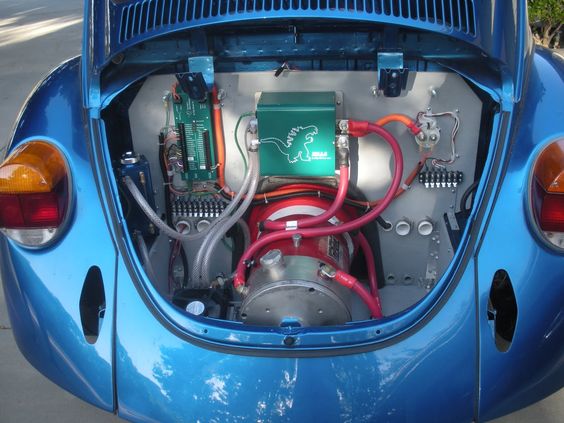When it comes to converting a classic Volkswagen Beetle to electric power, choosing the right electric motor is one of the most critical decisions you’ll make. With the growing popularity of electric vehicles and the Beetle’s iconic status, this conversion offers a unique opportunity to embrace modern technology while preserving a beloved classic. In this guide, we’ll explore the key factors to consider when selecting an electric motor for your VW Beetle conversion, ensuring that you make an informed decision that aligns with your performance goals and driving needs.
Why Convert Your VW Beetle to Electric?
Before diving into the specifics of motor selection, it’s essential to understand why converting your Beetle to electric is a worthwhile endeavor:
Environmental Benefits
Electric vehicles produce zero tailpipe emissions, helping to reduce air pollution and combat climate change. By converting your classic Beetle, you can enjoy a piece of automotive history while contributing to a cleaner environment.
Cost Savings
Electric motors are generally more efficient than internal combustion engines, leading to lower operating costs. Additionally, electric vehicles require less maintenance due to fewer moving parts, which can save you money in the long run.
Performance Enhancements
Electric motors provide instant torque, resulting in improved acceleration and responsiveness. This can make driving your Beetle more enjoyable and engaging.
Modern Technology
Converting to electric allows for the integration of modern features such as regenerative braking, advanced instrumentation, and smart charging solutions.
Factors to Consider When Choosing an Electric Motor
1. Power and Torque Requirements
The first step in selecting an electric motor for your VW Beetle conversion is determining your power and torque requirements. Consider how you plan to use the vehicle:
- Daily Driving: If you intend to use the Beetle for daily commuting, a motor with around 100-120 horsepower (hp) and sufficient torque (around 150-200 lb-ft) should provide a good balance of performance and efficiency.
- Performance Goals: For those looking for a more spirited driving experience, consider motors that deliver higher power ratings. Motors like the Hyper 9, rated at 120 hp and 173 lb-ft of torque, can provide excellent acceleration and responsiveness.
2. Motor Type
There are several types of electric motors to choose from, each with its advantages:
- AC Induction Motors: Known for their durability and efficiency, they are commonly used in many electric vehicle applications and provide high performance across a wide range of speeds.
- Permanent Magnet Synchronous Motors (PMSM): These motors offer high efficiency and torque density, making them ideal for applications where space and weight are considerations. They are often used in high-performance electric conversions.
- Brushless DC Motors: Known for their high efficiency and low maintenance requirements, they provide smooth operation and are suitable for various applications, including classic car conversions.
3. Voltage and Compatibility
Electric motors operate at different voltage levels, typically ranging from 48V to 96V or higher. When selecting a motor, ensure that it is compatible with your battery pack and controller. For instance, if you choose a 72V battery system, ensure that the motor can operate efficiently within that voltage range.
4. Cooling Requirements
Electric motors generate heat during operation, so it’s essential to consider cooling options. Some motors come with built-in cooling systems, while others may require external cooling solutions. Ensure that your motor choice aligns with the cooling capabilities of your conversion setup.
5. Weight and Size
The weight and size of the motor are crucial factors, especially in a compact vehicle like the Beetle. Ensure that the motor can fit within the available space without requiring significant modifications to the vehicle’s structure. Additionally, consider the weight distribution to maintain the Beetle’s handling characteristics.
Recommended Electric Motors for VW Beetle Conversion
1. Hyper 9 Electric Motor
- Power: 120 hp
- Torque: 173 lb-ft
- Type: AC Induction
The Hyper 9 is a popular choice for classic car conversions due to its compact size and high performance. It provides excellent acceleration and is well-suited for daily driving.
2. HPEVS AC-50 Motor
- Power: 70-100 hp (depending on configuration)
- Torque: 120 lb-ft
- Type: AC Induction
This motor is a great option for those looking for a balance of performance and efficiency. It is lightweight and can be paired with various battery configurations.
3. Sevcon Gen4 Motor
- Power: Up to 100 hp
- Torque: 200 lb-ft
- Type: Permanent Magnet Synchronous
Known for its high efficiency and compact design, the Sevcon Gen4 motor is ideal for performance-oriented conversions. It offers excellent torque at low speeds, making it suitable for city driving.
4. Unique EVs 31kW Motor Kit
- Power: 31 kW (approximately 41 hp)
- Torque: 134 Nm
- Type: Permanent Magnet Synchronous
This kit is designed specifically for small vehicle conversions like the Beetle. It provides a good balance of power and efficiency for everyday use.
The Conversion Process
Once you’ve selected the right electric motor, the conversion process involves several key steps:
- Remove the Existing Engine: Carefully disassemble and remove the gas engine and associated components from the Beetle.
- Install the Electric Motor: Mount the electric motor in the engine bay, ensuring proper alignment with the transmission and drivetrain.
- Battery Installation: Securely install the battery pack in a location that maintains weight distribution and safety. Many conversions place batteries in the trunk or under the floor.
- Wiring and Connections: Connect the motor, battery, and controller, ensuring all wiring is secure and insulated to prevent shorts.
- Cooling System: If required, install cooling systems for the motor and battery to maintain optimal operating temperatures.
- Instrumentation: Upgrade the dashboard to include modern instrumentation that displays battery status, power consumption, and other critical metrics.
- Testing and Calibration: Once everything is installed, conduct thorough testing to ensure all systems are functioning correctly. Calibrate the motor controller for optimal performance.
Conclusion
Choosing the right electric motor for your VW Beetle conversion is a critical decision that will influence the vehicle’s performance, efficiency, and overall driving experience. By considering factors such as power requirements, motor type, voltage compatibility, and cooling needs, you can select a motor that aligns with your goals for the conversion. With the right motor and a well-planned conversion process, you can transform your classic Beetle into a modern electric vehicle that offers the charm of the past with the benefits of sustainable driving.

